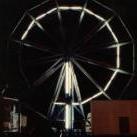Leaderboard
Popular Content
Showing content with the highest reputation on 04/06/2016 in all areas
-
Here are my answers/thoughts. For your general questions: 1. I started taking violin lessons when I was eight years old. 2. I pretty much dabbled in improvising melodies ever since I started violin lessons. I found that more interesting than playing through scales and boring etudes. I would say that I started seriously composing in the 7th grade. My school had a computer set up with a very basic notation software which I used to write some of my first little pieces (unfortunately almost all of them lost) and I just pursued it as a hobby and later in high school, I took my first music theory class that really set up my lifelong interesting composing music. 3. I mostly use notation software. I do write down bits of music that come to mind when I'm away from the computer (my office desk has a stack of blank music paper) and later transcribe them into Finale if I find they are worth keeping. For your second part: I would myself about 50% taught, 50% self-taught. I studied music theory in college (actually ended up with a B.A. in music as one of my majors). I could consider my advanced music theory class as the first (and really only formal composition course) I took which was in my second year in college. My professor for that class was awesome and pushed us to compose music as assignments and I greatly benefited from that formal approach. The two major assignments were to write a piece in sonata form and a short vocal work with piano accompaniment. However, I didn't take further composition classes since there was a heavy bent at my university for ethnomusicology and post-modern music which was not compatible to my musical style which is very conservative and grounded in tonality. Overall, though, my experience was very positive. I think having a solid groundwork in theory but being almost completely self-developing in composition allowed me much more freedom in developing my voice. I would think that one downside to having a formal composition teacher is that it would be easy to end up more as a disciple of that teacher and emulate his/her style without freely developing your own voice. I think it's more important to have a good group of knowledgeable listeners to critique your work (like on this site) and let you find your own answers in developing your compositional style.2 points
-
I started a symphony, and I hope I don't jinx it by stating the fact. But it's like, if not now, when?1 point
-
I started playing guitar at 9 or 10. My uncle worked for Fender guitars. He knew I was serious because I practiced all the time and never came up from the basement. He bought me my first guitar. At 11 I joined a local band called Chip and the Dips. I was a dip. Later I morphed into a percussionist and I took lessons at The American Conservatory of Music in Chicago. My teacher was James Dutton, who taught all of his students a totally comprehensive, soup to nuts education. We always had percussion ensemble work, and one day he assigned each of us to write an original work or arrangement for the ensemble. He liked what I wrote and actually paid me for it to use with his private band on the road. He was an influential teacher and this was the start of me composing. So I started composing simply because people thought I had talent. I was 18. Then I learned that Roosevelt University had an electronic music studio with a couple of large Moog synthesizers. That's when I enrolled there as a composition major, piano minor. I knew nothing about the style of music or the requirements of the composition staff. I had blinders on for the Moog. My admission consisted only of auditioning for the chair of the piano department, no portfolio of compositions was required. I was 21. I had two composition teachers, one for electronic music and one for "traditional." And by traditional I mean Berg and Webern. I was expected to devise stratagems, tone rows and the like, for my compositions. I didn't know what I was doing. It ran counter to my intuition, and my pop music sensibilities. Besides, I liked Stravinsky. And Stravinsky to a Weberner is trash. He would say to me, "Stravinsky would be nothing without the repeated note." I was allowed to write what I wanted, but at that age one writes to please the professor. Positive or negative? A little of both. Over the years I've had MANY great teachers to whom I owe my gratitude. My EM teacher taught me the value of the musical "gesture," which is part of me now. But the Berg disciple taught me nothing. I only regret that I never received a solid grounding in counterpoint and the classical style. But being academia, somehow that was not as important as being avant garde. My piano teacher, I must say, taught me so much! Ludmilla Lazar, a Bartok wiz! is what a good teacher is supposed to be. When I told her that I wanted to play the Stravinsky Piano Sonata (which was clearly beyond my level) she didn't say no, she just gave me a concerned look, thought about it, and then a small grin. She said, You will have to work very hard to learn this. So I did and she was behind me all the way. I had very little interaction with the orchestra for my compositions, just a few hours when you add it all up. I have always composed at the piano. Only recently, after selling my piano, do I use a DAW in conjunction with a notation program. This has opened up my world like you have no idea! Though I believe in teachers 100%, you probably know that all composers, regardless of structured education, are self taught.1 point
-
General questions: 1. Sophomore year of high school. 2. At the same time. The only reason I started getting into music seriously was because I decided I wanted to be a composer and I immediately started making haphazard attempts at it when I started learning theory. 3. I write the basic stuff down by hand, and then fine tune it all once I've got a Finale document going. Composers who are self-taught (i.e. you had no private or group lessons for specifically composition, aside from a composition based assignment in a music class or ensemble): 1. I'd say it's circumstance. The fact is, I've never had a composition class. I learned a lot of what I know while in high school with the help of the band director. I wasn't in band, but he taught me music theory from the ground up since I knew hardly anything to start with. As far as college, I've been in and out of school and have yet to take an actual composition class. 2. The hardest part of having to learn everything myself has just been that I have hardly anyone to talk to about what I'm doing or how to get better. This site has been a great source of input and I do know a few people who I can talk to about music face to face, but not having many musical friends anymore really makes it harder. 3. I wouldn't know how to answer this question accurately, but I like to think it's ultimately led to me being able to make my own decision about what kind of music I'll write and how I'll write it. 4. It sounds both fun and intimidating to have a real teacher. It could be rigorous and help a composer grow faster, but I also worry that I'd get one of those teachers who doesn't want you composing music that isn't fit for the new age of atonality and experimental stuff. I'm sure there are lots of nice encouraging teachers out there too but it's hard for me to dismiss the more negative possibilities. 5. I'd guess it would depend on when I had taken them. If I'd started taking them earlier on and had them consistently then I guess it would be a tradeoff. Faster growth in exchange for a different course of development. I wasn't really the kind of person who could make strong individualistic choices easily. If someone were there influencing me I'd just end up being a pastiche of them. Recently I've made choices about who I want to be as a composer going forward and they've been in large part based on the fact that I don't have a teacher or training. I'm just going about cherrypicking elements of music as I come across them in life without having any one consistent source of inspiration or learning. It's been slower, harder, and more haphazard but I think it was for the better. Of course now that I've reached this point where I'm getting better at carving out my own character, I think having a teacher would be less likely to leave too heavy an impression on me and I'd welcome some learning (though the 'circumstances' haven't changed so that's unlikely to happen yet) and professional help. I could be wrong about any or all of this. I don't know, I'm just saying what seems apparent to me.1 point
-
All of them. Literally all of them. But at the moment the one that comes to mind is the third YC Theme Challenge I never finished with Luderart's theme.1 point
-
There's a particular piece has a funny story, it's called "Cartoon" and suppose to be a funny piece, it is for piano, and is not hard to play, is not very complex in any form, is currently about 6 minutes of 10 I originally planed for it... anyway, I started writing it maybe in 2003 or so, and for some really unknown reason to me I haven't finished it, I write very few notes and then it takes years and again a few more notes, somehow I rapidly loose the interest on it every time I attempt to continue, but I always postpone without any rush. When I finish you won't believe it took so long for such a silly thing.1 point


